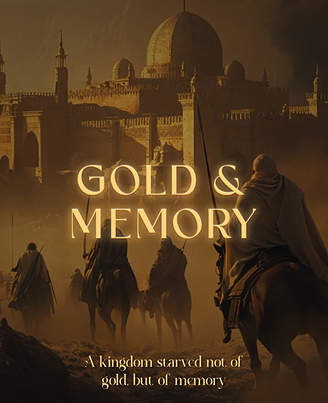All great stories challenge us to think about the decisions that people make when their values are put to the test. In Divine Lines, betrayal and loyalty aren’t sensational plot developments; they’re the blood of the story. They decide kingdoms, provoke wars, and challenge the strength of every single character that we encounter. If you have read volume one, you already know that trust is as thin as glass, and once it breaks, it’s almost impossible to rebuild.
Loyalty That Demands Sacrifice
One of the most obvious lessons Divine Lines teaches is that loyalty is not a free gift. It usually requires sacrifice, either in the form of subordinating happiness to duty or persevering in faith when the rest of the world is crumbling. Such characters as the Priestess of Ari are examples. Her commitment to her people and their religious ways compels her to venture outside the security of her concealed kingdom and into a world full of uncertainty. Such a commitment takes bravery, and it serves as a reminder that genuine loyalty comes at a steep price.
Betrayal That Cuts Deep
Conversely, betrayal in Divine Lines never needs to be reduced to just one dimension. It’s not just “good vs. evil.” Betrayal is sometimes ambition, such as Tabar’s desire for lost lands. Sometimes it’s fear, jealousy, or even hope for survival. The pain of betrayal in the novel is particularly biting because it nearly always involves someone close to you, someone whose loyalty was previously assumed. And isn’t that just like in real life? We can prepare ourselves for attacks from others, but when it is a knife from a friend, it cuts the deepest.
The Gray Area in Between
Maybe the most interesting thing about Divine Lines is the gray area it creates between betrayal and loyalty. Characters such as Red and Zane, for example, grapple with decisions that don’t fit neatly into one category. Are they betraying their people, or are they being loyal to a larger mission? This makes us have to think about how subjective loyalty actually is. Sometimes what seems sensible for one individual appears to be a betrayal for another.
Lessons for Us
What makes Divine Lines so compelling is that it doesn’t simply confine these themes to a world of fantasy; it mirrors our own human experiences. Consider your own life: have you ever been forced to decide between being faithful to a friend versus remaining faithful to your values? Have you ever experienced the pain of betrayal from someone you trusted deeply? The book reminds us that these were not only struggles of kingdoms and prophecies but part of the human experience.
Closing Thoughts
Ultimately, Divine Lines teaches us that loyalty and betrayal are two sides of the same coin. They both reveal the true character of individuals and the strength, or weakness, of relationships. Loyalty inspires us, betrayal wounds us, and together they drive stories that stay with us long after we’ve turned the last page.
So, when you finish reading the book, the question remains: in your own life, where would your loyalty lie when the stakes are high, and at what cost?
